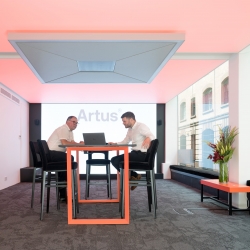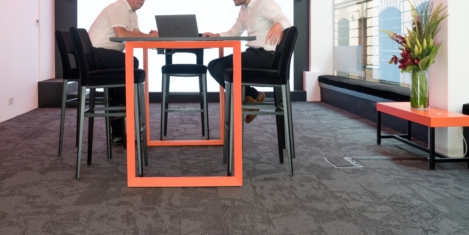June 8, 2022
FUTURE Designs and Artus announce sustainable buildings collaboration
 Artus, the ground-breaking heating and cooling system specialist and FUTURE Designs, the UK’s leading commercial lighting manufacturer, are pleased to announce their collaboration on a purpose-designed, multi service system (MSU), offering a more sustainable and comfortable future for buildings and their occupants. The Artus MSU complements the existing Artus product with an exclusively sourced, custom-built lighting system from FUTURE Designs, alongside comprehensive acoustic properties. This means the functionality is threefold: Artus’s advanced patented air conditioning system, FUTURE Designs’ intelligent lighting system and Class A acoustics. More →
Artus, the ground-breaking heating and cooling system specialist and FUTURE Designs, the UK’s leading commercial lighting manufacturer, are pleased to announce their collaboration on a purpose-designed, multi service system (MSU), offering a more sustainable and comfortable future for buildings and their occupants. The Artus MSU complements the existing Artus product with an exclusively sourced, custom-built lighting system from FUTURE Designs, alongside comprehensive acoustic properties. This means the functionality is threefold: Artus’s advanced patented air conditioning system, FUTURE Designs’ intelligent lighting system and Class A acoustics. More →










 Even as we begin to glimpse the light at the end of the tunnel of the pandemic, evidence suggests that many workers want to carry over the working flexibility that the pandemic afforded into the post-pandemic world and a new future of work. Namely, employees are wanting to adopt a ‘mixed’ working style – spending time both working in the workplace,
Even as we begin to glimpse the light at the end of the tunnel of the pandemic, evidence suggests that many workers want to carry over the working flexibility that the pandemic afforded into the post-pandemic world and a new future of work. Namely, employees are wanting to adopt a ‘mixed’ working style – spending time both working in the workplace, 





















June 9, 2022
How I learned to stop worrying and embrace uncertainty
by Mark Eltringham • Comment, Flexible working, Technology